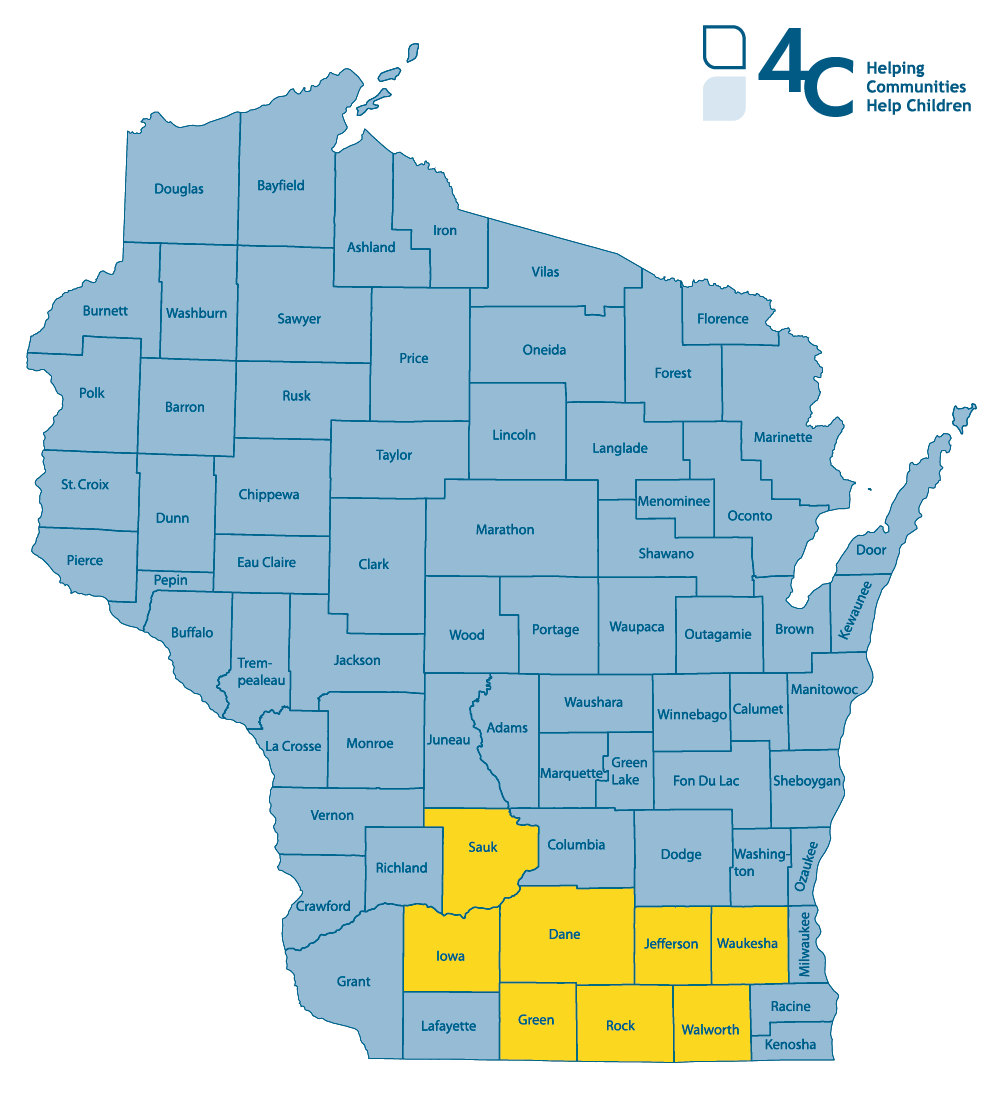About Family Child Care Certification
Certification is a type of regulation that allows you to care for children in your own home. Certified providers can care for up to 3 children under the age of 7 who are not related (to the provider) with a maximum group size of 6 children. Group/Size Estimator
Why would I want to become certified?
You would be:
Helpful Links
FAQ
Am I required to pay taxes on the money I earn caring for children in my home?
Yes, you are considered a self-employed small business, and, therefore, must report your income, including county payments because taxes are not withheld. Additional Information.
Will the county pay a certified provider to provide care in the child’s home?
This only occurs in rare cases when pre-approved by the county.
What are the benefits of becoming a certified provider?
As a certified provider, you will be able to care for children who receive county assistance, your name will be included in the 4-C Referral database, and you can enroll in the Child and Adult Care Food Program to get a portion of your food costs reimbursed. In addition, you will receive support from the 4-C Certification Department.
How many children can I care for when there are two providers in the home?
Even with two providers in the home, the number of children you may care for may not exceed three unrelated children under the age of seven at any one time.
Do I need to have a crib or pack’n play if I care for infants?
Yes, infants who are under the age of one need to be placed in a pack’n play or crib to nap.
Can neighbor kids come over to play or can my son have his friend over during child care hours?
A certified provider should not care for more than the allowable number of children and must ensure the child care children receive adequate care and supervision. If your own child, who is over age seven, has neighborhood children/friends visiting and on the premises, they will be counted in the group size if there is not an adult/guardian that the child can quickly return to. Any visiting children under age seven will be counted in the group size. It is also important for you, as a caregiver, to ensure that the presence of non-client children in the home does not compromise the care and supervision of the child care children.
Am I required to pay liability insurance for my child care business?
Certified family child care providers in Wisconsin are not required to carry liability insurance but are required to notify parents in writing of their insurance coverage. 4-C suggests that providers carry liability insurance if they are able to.







